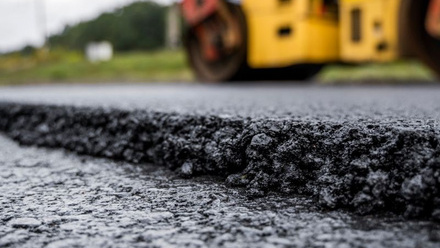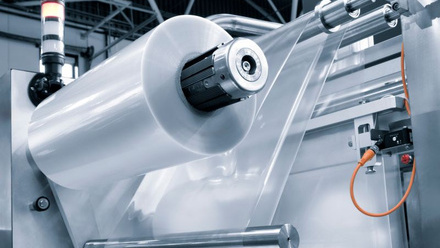UK Government responds to consultation on Plastic Packaging Tax
The government's response confirms a mass balance approach for chemically recycled plastic.
Last year, IOM3 responded to a UK Government mass balance consultation for the Plastic Packaging Tax (PPT). The response highlighted that the uncertainty of mass balance being permitted within the scope of the PPT, will hinder the growth opportunities and innovations that have been developed within the UK from being commercialised here.
The consultation which ran for 12 weeks last year, invited views on the case for allowing a mass balance approach for accounting for chemically recycled plastic in the Plastic Packaging Tax and the controls needed to ensure the integrity of the tax.
The government response confirms that a mass balance approach will be allowed to account for chemically recycled plastic for the purpose of Plastic Packaging Tax. It also confirms that when the changes to allow a mass balance approach are introduced, pre-consumer waste will no longer be classified as recycled plastic for the purpose of Plastic Packaging Tax. There will be no change to the exemption for the immediate packaging of human medicines for the foreseeable future.
The government has said it will undertake further technical engagement before confirming when the changes will take effect and publish draft legislation for technical consultation. IOM3 is looking forward to continue working with industry stakeholders and the UK Government to further develop and implement the changes brought about.
IOM3 Packaging Group Chair, Jude Allan FIMMM celebrates this, 'This is really positive news mass balance will be a really important part of the recovery process for recycled plastic packaging, enabling recycled material to be used safely in food contact applications'.
Rachel Stonehouse, Head of Policy at IOM3 says,'It is good to see confirmation from government that businesses will be allowed to use a mass balance approach to calculate the recycled content in chemically recycled plastic for the purposes of the tax. This clear policy direction is key to unlocking further investment in recycling infrastructure and transitioning to a more circular economy. It is encouraging to see that almost all the recommendations made by IOM3 in its submission have been reflected in the government response; from the use of mass balance being technology neutral to support innovation, to excluding products that are used in the production of fuel, as well as recognising the importance of deducting process losses. IOM3 looks forward to continuing to work with government and other stakeholders as approach is developed in more detail and throughout its implementation'.
Summary of the government responses and comparison with the IOM3 submission
|
|
IOM3 submission |
Government response |
|
Mass balance approach |
Application of mass balance should be technology neutral to foster new technologies. A technology agnostic approach creates a more level playing field stimulating competition and innovation. |
The definition of chemical recycling should be technology and process neutral to support innovation and allow for the development of new technologies. |
|
It should be made clear in the definition that fuel is excluded. |
The definition should exclude products that are used in the production of fuel or the generation of energy. |
|
|
For example, the European coalition for chemical recycling definition. |
The government intends to introduce a definition of chemical recycling in line with the proposed definition by the European Coalition for Chemical Recycling, for the purpose of the tax. |
|
|
Pre-consumer plastic waste |
Pre-consumer waste should be phased out and the timetable should be determined with involvement of industry. |
Pre-consumer waste to be removed as recycled material for the purpose of the Plastic Packaging Tax. Government intends to align the removal of this provision with the timeframe for the adoption of a mass balance approach for chemically recycled plastic, which will be set out in the future. |
|
Plastic packaging used for human medicinal products |
Whilst some technologies produce virgin quality material, immediate packaging of human medicines require known provenance throughout the value chain. In addition, consistent, reliable, and sufficient feedstock at the necessary quality would be required to make the registration changes and process viable. Further work is required to identify future developments towards more sustainable plastic for immediate packaging of human medicines and to better understand the potential role of chemical recycling. A helpful immediate focus for these materials would be to ensure they are captured and kept in the economy as quality feedstock for recycling. |
Considering the concerns raised by several respondents about the lack of available feedstock needed to meet an increase in demand for chemically recycled plastic, the government has decided not to make any changes to the medical exemption for the foreseeable future. However, the government’s long-term ambition is to remove the medical exemption when more chemically recycled plastic becomes available. |
|
Investment |
Adopting an effective, well-designed mass balance approach would improve the investment case for chemical recycling in the UK. Stable policy frameworks support the confidence required for investment. |
Adoption of a mass balance approach is one of several factors that, when combined, have the potential to encourage investment in UK recycling technology and support the development of the chemical recycling sector. |
|
Waste hierarchy |
Chemical recycling is a complementary technology to mechanical recycling. It has the potential to provide a solution for more diverse and lower quality feedstocks that are not suitable for mechanical recycling while still delivering high quality output. It should be used to capture and process plastics not suitable for mechanical recycling and used as an alternative to incineration/landfill. Consideration will be required to ensure the technologies are not competing for the same material and further investment in mechanical recycling is not disincentivised. |
The government notes the potential for the adoption of a mass balance approach to disincentivise efforts to move waste up the hierarchy. The government believes that the overall effect will be positive, given the potential to both reuse difficult to recycle material and to produce recycled plastic for food packaging. |
|
Environmental impacts |
Further information is required to address concerns around hazardous chemical byproducts and energy and solvent use. |
The government notes the concerns raised about the potential environmental impacts and believes that the overall effect will be positive, given the potential to both reuse difficult to recycle material and to produce recycled plastic for food packaging. |
|
Mass balance models |
Batch and site level support the objectives of the PPT to a much greater extent than group level Site level offers a balanced approach that supports the objectives of the PPT and investment in chemical recycling. |
Government believes the site level mass balance along with the restricted transfer of credits will strike the right balance between encouraging and facilitating chemical recycling while preserving the integrity of the tax, preventing greenwashing, and maintaining consumer confidence in the recycling process. |
|
Allocation method |
The fuel exempt method is probably currently the best balance between alignment with the objectives of the PPT and practicality/viability. All methods require much greater consideration relating to process losses, especially for proportional balance and fuel exempt, as this could be misused otherwise. |
The fuel exempt method strikes the right balance between providing a strong incentive to invest in the UK chemical recycling sector and maintaining the integrity of the tax and consumer confidence in recycling. |
|
Balancing period |
A negative balance risks market distortion and should not be allowed to ensure a level playing field. In addition, negative balance would be hard to explain to end users and consumers and so would risk undermining the credibility both of the tax and of the technology. |
A negative balance should not be allowed at any point in the balancing period to preserve the integrity of the tax. |
|
A 3-month period to align with quarterly tax returns and existing certification schemes would be a reasonable balancing period. |
A 3-month balancing period without a facility of a negative balance at any point, strikes the right balance between minimising administrative burdens, maintaining a level of traceability and reducing the risk of fraud. |
|
|
Measurement units |
Molecular unit measurement best supports the environmental aims of the tax. Lower heating value should be excluded as fuel-based products should not be included for the purposes of the tax. Mass: Advantages - A single unit used by all actors throughout the value chain supports consistency and Disadvantages - Problematic as it risks an incentive not to clean input material properly Molecular: Advantages - A cleverer approach that promotes better quality material by reducing the risk of insufficient cleaning Disadvantages - More complicated calculations Lower heating value: Fuel-based products should not be included. |
Different units of measurement may be appropriate at different stages of the supply chain. In the later stages of the supply chain where polymers are being shipped and plastic packaging components manufactured mass is the commonly used and most easily understood measure, and this is the measure used for tax accounting purposes. However, at the refinery stage where the key mass balance calculations are being made Lower Heating Value is an approach that is consistent with current industry practices. Molecular units might produce a marginally more accurate result, and therefore should not be discouraged, but if this was made a requirement this could impose administrative burdens for minimal benefit. This being the case, the government is not inclined to prescribe a particular unit of measurement or to exclude the use of any units. |
|
Process loss |
Deducting process losses is essential to maintain integrity of the system and reduce risk of exploitation. Ensure a level playing field with mechanical recycling and the waste management industry. A sensible approach would be to establish a deemed loss amount for a given group of technologies (eg pyrolysis, dissolution, chemical depolymerisation, etc) where the feedstock has undergone a reasonable pre-treatment process (washing, etc). This would need to be set at a realistic best available technology level, and only if a specific facility could demonstrate a more favourable figure would it be allowed to use that rather than the deemed loss amount. |
Process losses should be deducted, and existing certification schemes are quite stringent in this regard. However, as we formulate detailed proposals, the government will do further work with industry to ensure these losses are accurately calculated and are not abused.
The government summary highlighted the IOM3 suggested approach. |
|
Certification |
A requirement for certification schemes to verify compliance with a mass balance approach should be introduced. |
Verification by an independent certification scheme based on prescribed standards would be an essential requirement when using a mass balance approach to calculate the amount of chemically recycled plastic. |
|
A minimum requirement for the frequency and nature of audits should be introduced. |
Standards should include requirements for frequency of audits of certified businesses, and for reporting of audits to scheme operators. |
|
|
All businesses in a supply chain should be certified. While it would be preferential for this to be the same scheme, it could be a different scheme as long as they meet the minimum requirements and are compatible with each other. |
There is not a compelling case to require all members of a supply chain to use the same certification scheme, as all schemes will be required to meet the same standards. This will also reduce the administrative burden and cost to businesses of having to be part of more than one scheme because they are part of several different supply chains. |
|
|
Accreditation of certification bodies |
Support the proposed accreditation requirement for certification bodies who complete the certification scheme audits. |
The government welcomes the broad support for the introduction of an accreditation requirement for certification bodies to protect the integrity and ensure validity of mass balance calculations. The government will continue to work with UKAS to establish the process for accreditation, including the use of mutual recognition agreements. |







